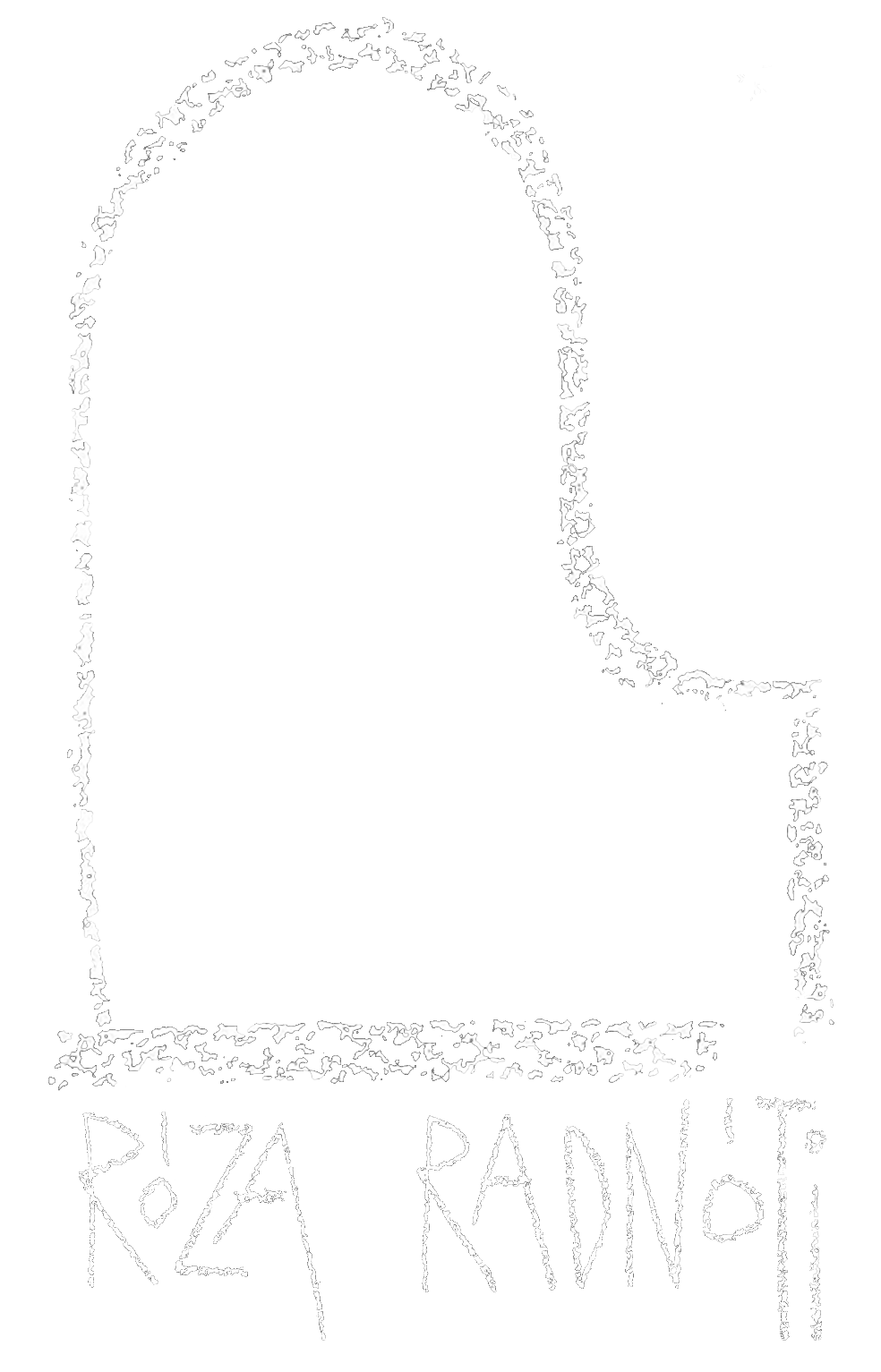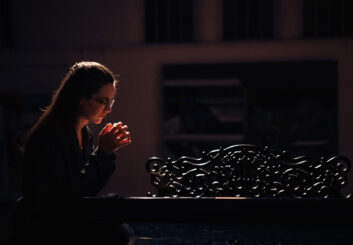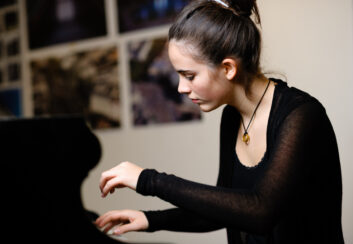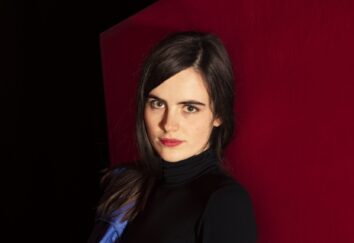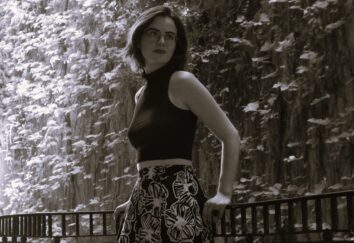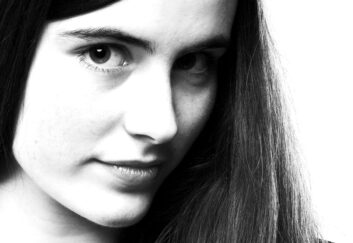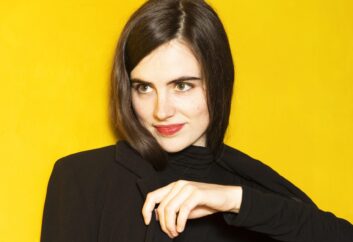2024 ● Róza got the prestigious Annie Fischer scholarship
09. 2025 ● Shooting and recording of Rameau: Suite in e-minor with Mihály Kerényi film director and crew ● pianist
16-19.10.2025 ● 'The Players' workshop of Yoann Bourgeois and Winston Reynoldz ● participant
Orsolina28, Italy
8.11.2025 ● Song recital with Katalin Károlyi mezzosoprano ● pianist
3, 2, 1, Festival at Kiscelli Museum, Budapest
9.11.2025 ● Duo recital with Bartosz Koziak (PL) ● pianist
3, 2, 1, Festival at Kiscelli Museum, Budapest
16.11.2025 ● The Carnival of the Animals by Saint-Saëns ● performance and narrated for kids ● narrator&pianist
Franz Liszt Academy of Music, Budapest
23.11.2025 ● "Mozart and Rameau on piano, sketchbook and film" ● piano recital and interdisciplinary showreel of Róza Radnóti
Ádám Bősze Music Antiquarian Bookshop, Budapest
19.12.2025 ● Fairy Tales by Dvořák & Janáček ● Chamber Recital with Animation of Children's Drawings ● pianist&artistic director
House of Music, Budapest
in cooperation with Moholy Nagy University, Budapest and Igazgyöngy Foundation
Róza Radnóti was a 2024 Fischer Annie Scholarship recipient. She graduated with honours from the Liszt Academy of Music in 2022 with an MA degree, and also studied at the Mozarteum in Salzburg. Among his masters are artists such as Gábor Csalog, Zoltán Fejérvári, András Kemenes, István Lantos, Imre Rohmann and Rita Wagner. She has been successful in numerous competitions, winning first prize at the Goodmesh Competition in The Hague in 2022, special and second prizes at the national Weiner Competition in 2023, and was selected from hundreds of applicants as one of the six finalists at the international Schimmel Competition in 2024. In her musical career to date, she has been active mainly as a chamber musician and soloist, performing in Hungary's most important concert halls and in many European countries. She made her debut recording in 2023, filming Ligeti's Musica ricercata. Róza considers her projects, which also include other artistic disciplines, an integral part of her musical activity. She has directed several music videos and interdisciplinary stage performances, most notably her music videos for the Mozarteum University Salzburg, which were presented at the Rathausplatz Film Festival in Vienna, and the interdisciplinary performance of Messiaen's Quartet, a symbiosis of contemporary dance, lights and video, which was presented at the Liszt Academy in October 2024. In the course of her career, she has worked with artists such as Tamás Ascher, Kristóf Baráti, Malcolm Bilson, Gergely Dubóczky, József Balog, Rita Góbi, Noémi Győri, Katalin Károlyi, Eszter Petrovics, Zoltán Rácz, Fülöp Ránki or József Wunderlich.
Róza Radnóti is a professional classical pianist, a child of an artist family, being interested in visual arts, stage- and filmdirecting. She always felt a strong desire to combine her artistic interests into one piece of art on screen or on stage using instrumental classical music pieces in their original form. Because of her experience as a pianist, she is able to look at directing from the perspective of the performers. This is also what shapes her artistic language, which is based on motions, gestures and atmosphere of the pieces. Each of her works has a symbolic meaning which originates in the classical music piece itself, the composer’s life, or perceptions of the human soul. When her visual works are based on pieces written for piano, she uses her own recordings. With her visual interpretations she wants to discover the timelessness in the creative process itself as well as give an opportunity to the audience to dive into their inner universe and the meaningful world of classical music at the same time. She has directed several music videos and interdisciplinary stage performances, most notably her music videos for the Mozarteum University Salzburg, which were presented at the Rathausplatz Film Festival in Vienna, and the interdisciplinary performance of Messiaen's Quartet, a symbiosis of contemporary dance, lights and video, which was presented at the Liszt Academy in October 2024. In order to be able to learn in practise, she had had the opportunity to work together with artists such as Tamás Ascher stage director, Mihály Kerényi film- and stage- director, and Eszter Petrovics film director. Róza learned about visuality in various ways, she took part in the musicvideo 1.0 masterclass of the Moholy-Nagy University Budapest, and has been chosen to take part in the masterclass of Yoann Bourgeois chopreographer, director as well as Marcell Rév, award-winning cameraman.
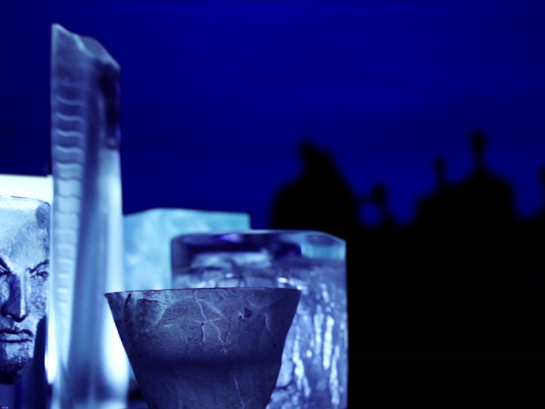
directed, edited and performed by
Róza Radnóti
camera: István Kürti
coreography: Rita Góbi, Róza Radnóti
dancers: students of the Ágnes Nemes-Nagy Highschool
@Moholy-Nagy University Budapest
György Ligeti (1923-2006) is one of the greatest Hungarian composers of all time. He composed a cycle at a young age, called Musica ricercata in which he dedicates a movement to his role model, Béla Bartók (1881-1945). The video of Róza Radnóti is based on this movement by Ligeti. Ligeti’s remembrance of Bartók is not only an imitation of his musical language: it recreates the atmosphere that appears often in Bartók’s life work. While creating the visual interpretation Róza was inspired by the illustrations of János Kass made for Bartók’s well-known opera, the Bluebeard’s castle. She uses contrasting colours and lights in order to depict and support the contrast between the musical materials. The basic storyline symbolises remembrance. Róza published this video on 25.03.2021, which was the 140th birthday of Béla Bartók.
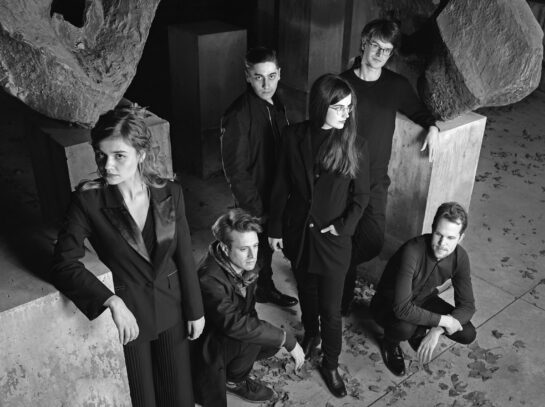
The melodrama is a rarely heard, but extremely exciting performance of poems and ballads by prominent romantic writers, including Lenau, Jókai, Tennyson and Turgenev, with musical illustrations, and the plot tells the adventures of everyday or unreal characters. The programme of the three evenings is a real speciality, bringing together melodramas by the greatest composers of the musical literature, from Grieg, Schumann and Liszt to Richard Strauss. The works are performed in Hungarian, some of them in translations by renowned contemporary Hungarian poets.
The three concerts:
Csenge Horváth, Imre Dani
Grieg: Bergliot / B. Bjørnson
Schumann: Zwei Balladen / C. F. Hebbel
Schumann: Schön Hedwig / C. F. Hebbel
Arenszkij: 3 Deklamations / I. S. Turgenyev
Benjamin Dino, Fülöp Ránki
Liszt: Der traurige Mönch / N. Lenau
Liszt: Helges Treue / M. G. Strachwitz
Liszt: Lenore / G. A. Bürger
Liszt: Des toten Dichters Liebe / Jókai
Liszt: Der blinde Sänger / A. K. Tolstoj
József Wunderlich, Róza Radnóti
R. Strauss: Enoch Arden / A. Tennyson
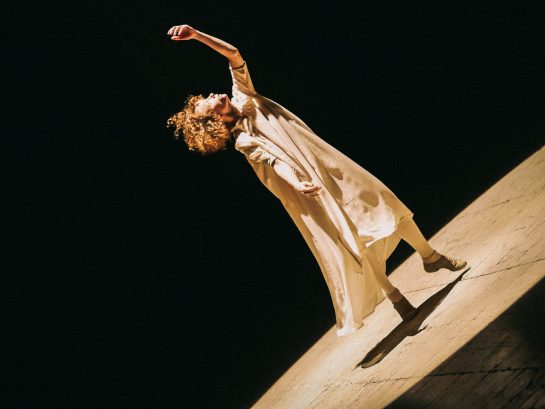
video art - 2022
W. A. Mozart: Piano Sonata KV 545 (2dn movement)
directed and performed by Róza Radnóti
dancer: Rita Góbi
camera: Lola Bedécs
lighting design: József Pető
location: Kiscelli Museum, Budapest
@University Mozarteum, Salzburg
W. A. Mozart (1756-1791) is one of the greatest composers of all time. To create a visual interpretation Róza Radnóti had the idea to show the sensitive and vulnerable part of Mozart’s personality: he confesses his sorrow mostly in his slow compositions. The film makes an attempt to find visually expressible happenings in the music and aims to bring an intense and complex experience to the audience by finding an abstract, not storytelling visual interpretation to the second movement of the Piano Sonata in C-major (K 545) by Mozart. The piece used as the basis of this film is nothing else but a single melody accompanied by constantly changing harmonies - as if a dancer would discover a space with constantly changing lights. The ‘lost in dimensions’ film is a diversely understandable metaphor of solitude and discovery that each individual viewer can interpret according to their own life experience and personality.
This film is created in the SpotOnMozART project of the Mozarteum University, Salzburg.
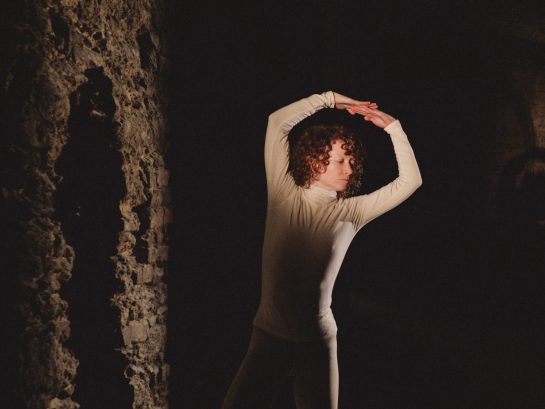
video art - 2023
W. A. Mozart: Piano sonata KV 280 (3rd movement)
pianist, director, coreography: Róza Radnóti
choreography and dance: Rita Góbi, Gizella Noémi Nagy
camera: Tibor Varjas, Marcell Krulik
lighting design: József Pető
production manager: Dániel Kerényi
editor and colorist: Mikul Mácsai
location: Kiscelli Museum (Budapest)
in collaboration with: Thomas Ballhausen
'Being talented is a blessing and a curse at the same time.'
Mozart had to deal with the problem of being an everyday human being and an extremely sensitive musician at the same time. Was it difficult to accept himself? Did he get frightened when he realized his extreme talent? Was his humor helpful in accepting himself? By searching answers to these questions, I realized many issues that can be symbolic and meaningful for any generation at any time. In my next film – which in many ways will reflect on my first film, ‘Lost in dimensions’ – I would like to depict the process of self-acceptance. The main character and her shadow are two independent entities, but they have to learn to work together, find and accept each other.
This film was created in the SpotOnMozART project of the Mozarteum University, Salzburg.
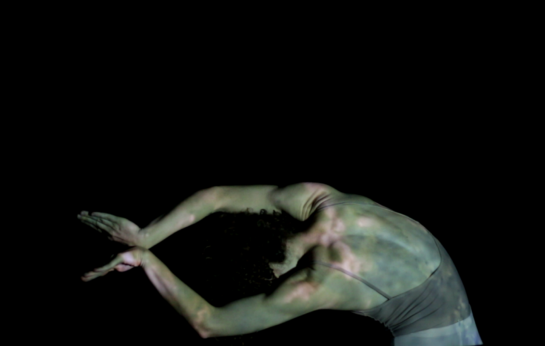
- first round: video selection
- second round: live performance in The Hague
directed, edited and performed by Róza Radnóti
dancer: Rita Góbi
cello: Mátyás Virág
...there are many forms of solitude...
...but the most magnificent is the one shared by two...
The Goodmesh Concours is an all-arts competition in The Hague. Each year contestants has to create a maximum 10 minute long performance based on a theme. In 2022 the theme was the allegory of ‘fish’.
The Trio Silhouette (Róza Radnóti, Mátyás Virág, Rita Góbi) won first prize at the Goodmesh Concours in The Hague.
For the first round of the competition the concept had to be realised in film, for the second round on stage. Róza Radnóti used the ‘fish’ theme as the symbol of higher self. A cellist and pianist, performing on stage, are stuck to their chairs throughout their performance. A dancer, however, as the symbol of their higher selves, can express through movements what is happening in the musicians’ soul while performing. This highly spiritual and ancient way of communication connects the three artists on stage or on screen.
The performance uses three classical music pieces: two solo pieces by György Kurtág (1926-) and a work for cello and piano by Leos Janácek (1854-1928). The audience first sees the solitude of the two musicians who find each other through music. Their joy of sharing their solitude is depicted in the movement that they perform together.
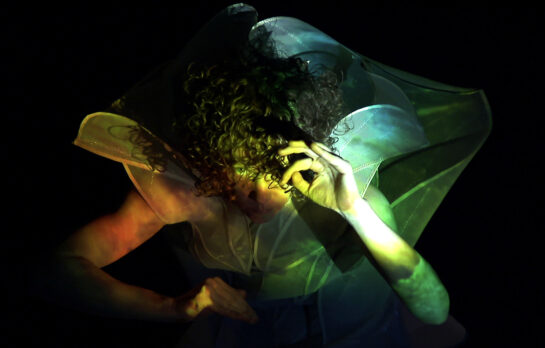
concert with light installation and contemporary dance - 2024
Messiaen: Quatuor pour la fin du temps
Oszkár Varga (violin), Flóra Matuska (cello), Péter Szűcs (clarinet), Imre Dani (piano)
Dancers: Liliána Bozsányi, Fanni Czvikli, Petra Rebeka Kiss
The motto will be read by Pál Mácsai
Choreography, Angel: Rita Góbi
Costume: Edit Szűcs
Multimedia artists: Dávid Maruscsák, Balázs Sánta (Hajime! Studio)
Cinematography: Dániel Kerényi
Mentor: Gábor Goda
Assistant Director: Nikoleta Dimitrov
Conception, artistic director: Róza Radnóti
Messiaen’s quartet for violin, cello, clarinet and piano is one of the most influential chamber works of 20th century music. Composed in a prisoner-of-war camp during the Second World War, its basic idea was inspired by the words of an angel descending from heaven in the Book of Revelation: ‘there shall be no more time’. The concept for the music, which was not originally intended for the stage, was created by pianist and interdisciplinary artist Róza Radnóti, who has produced several music videos, music films and music-based stage performances with her fellow artists. Based on the composer’s artistic credo and the musical events and atmosphere of the work, the performance is born out of a dialogue between music, movement, light and space.
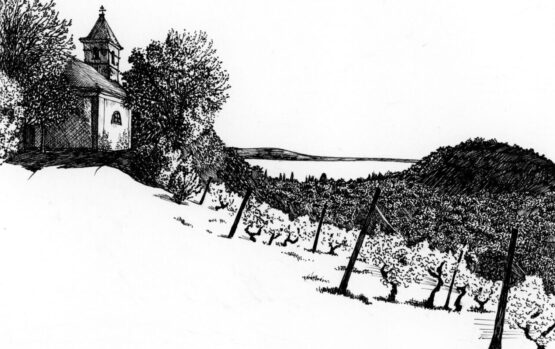
Born into a family of artists, Róza Radnóti has been surrounded by a wide variety of arts since childhood. This is one of the reasons why she has directed and produced several music videos, music films and even interdisciplinary stage performances while being a professional classical pianist. "I love to relax by creating", says Róza. "Drawing is one such activity. Being immersed in the tiny details transports me to a dimension outside of time, then the world around me disappears and I only perceive what I am drawing. I never go on a trip without a sketchbook and a black pen." In her exhibition at ISON Budapest in 2024, visitors were able to have a glimpse of the sketchbook she took with her on her travels.
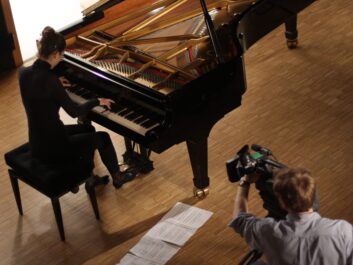
A movie adaptation of György Ligeti's Musica ricercata. Just like a literary work can be adapted to film, the director in this case views Ligeti's music as inspiration to his film. The only difference is that here the film is not based on words but on music notes. The film is developed through the characteristics of the music, therefore it is abstract. At the same time, music is conceived and presented as a narrative. Musica ricercata consists of 11 movements. Piece by piece, the composer applies a wider range of notes, starting with only two in the first one, and gradually reaching all twelve keys of the scale in the last fugue. The film is not a documentation of the music and the pianist's performance, but a movie on its own, an example of how music and image can intensify each other.
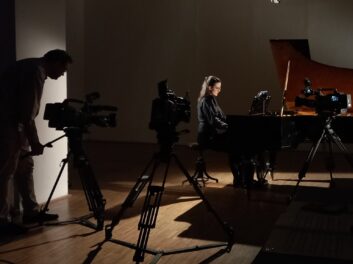
A movie adaptation of Béla Bartók's 14 bagatelles. The idea of making a music film was inspired by the working process on the music film made of György Ligeti' Musica ricercata. The young Ligeti was greatly influenced by Béla Bartók's music, which can also be discovered in his Musica ricercata cycle (for example, movement 11: In memoriam Béla Bartók). There are several similarities between the two piano cycles by Bartók and Ligeti. Róza, now the same age as the two composers were when they composed the piano cycles featured in the two films, has distinguished herself in numerous international concerts and competitions, and is an enthusiastic interpreter of 20th-century repertoire. Just like a literary work can be adapted to film, the director in this case views Ligeti's music as inspiration to his film. The film is not a documentation of the music and the pianist's performance, but a movie on its own, an example of how music and image can intensify each other.
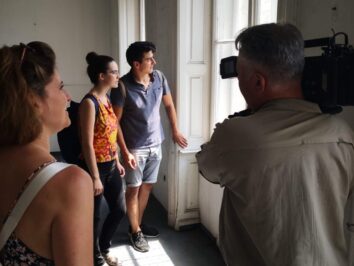
The second part of Eszter Petrovics' Kodály film trilogy focuses on the composer and musicologist's life from World War I to the premiere of Psalmus Hungaricus in 1923, focusing on the masterpiece. As in the first part of the series, the film explores this period of Kodály's career through conversations between the two protagonists - actor Gábor Fekete and pianist Róza Radnóti, who this time play the role of students at the Zoltán Kodály Hungarian Choir School - and various experts, as well as through the music performed in the film. The film culminates with a complete concert performance of Psalmus Hungaricus in the Pesti Vigadó, the venue of the work's original premiere.
"Janácek's violin sonata is not programme music. (...) It is a serious, sombre, tragic work. Róza Radnóti and Oszkár Varga's performance reached all the emotional depths to fully exploit the potential of this piece, but even with its weight, it appeared to me to be a fairy and narrative-like piece. Of course, the material itself allows for this, as Janácek organises and shapes the music according to the pulsations of language. (...) It was thanks to the courage and spontaneity of the performers that the sonata was able to be heard as programme music." /Zsófia Hózsa, Bartók Radio, June 2024/
"Róza Radnóti from Hungary, for example, had put together a melange of two piano cycles by her composer countrymen Béla Bartók and György Ligeti under the simple conceptual title 'Miniatures'. In this way, she not only combined the rarely performed cycles to create a new listening experience, but was also able to play them with such musical and technical skill that the listener took notice." /International Schimmel Competition, Piano News, March 2024/
"Cellist Mátyás Virág and pianist Róza Radnóti performed works by György Kurtág and Leoš Janáček, accompanied by lighting, visuals and dance. 'The tension during the performance was equal to that of literally catching a fish,' the jury noted. 'When you get a bite you get goosebumps and you want to keep the catch with you.'" /classical-music.com, December 2022/
